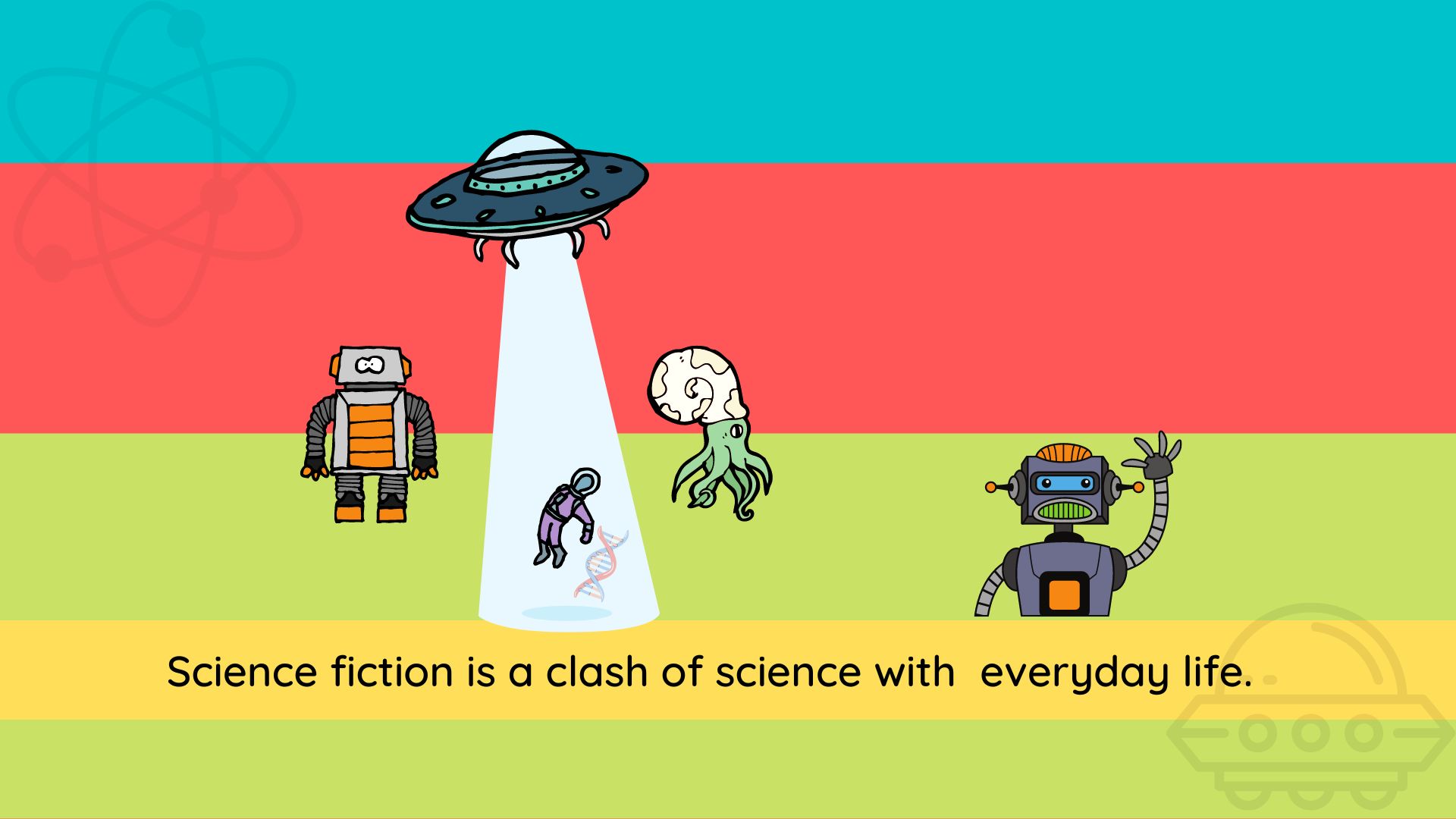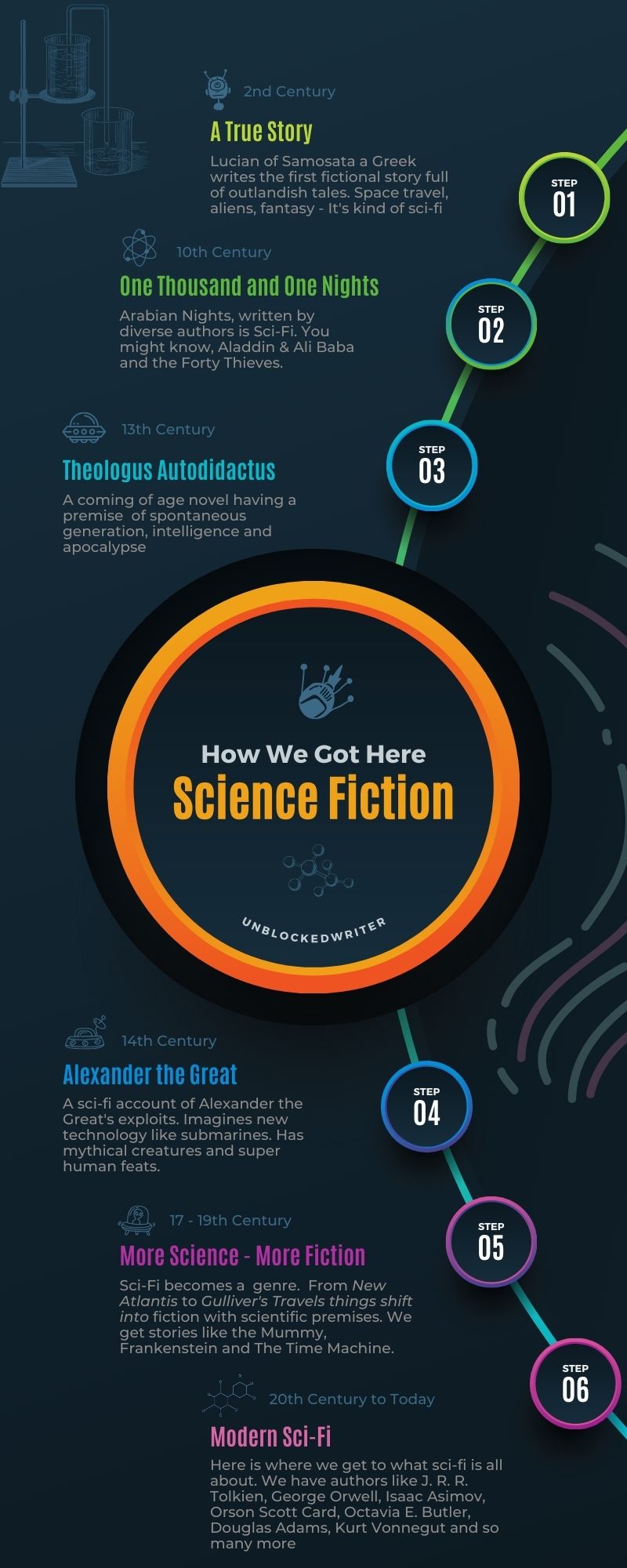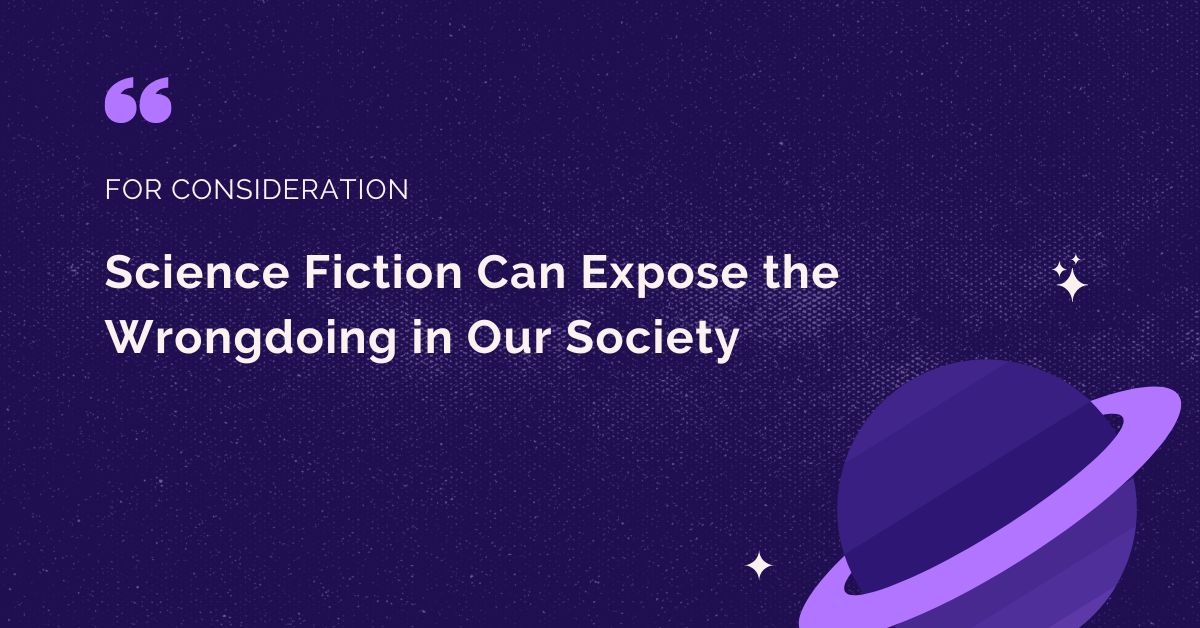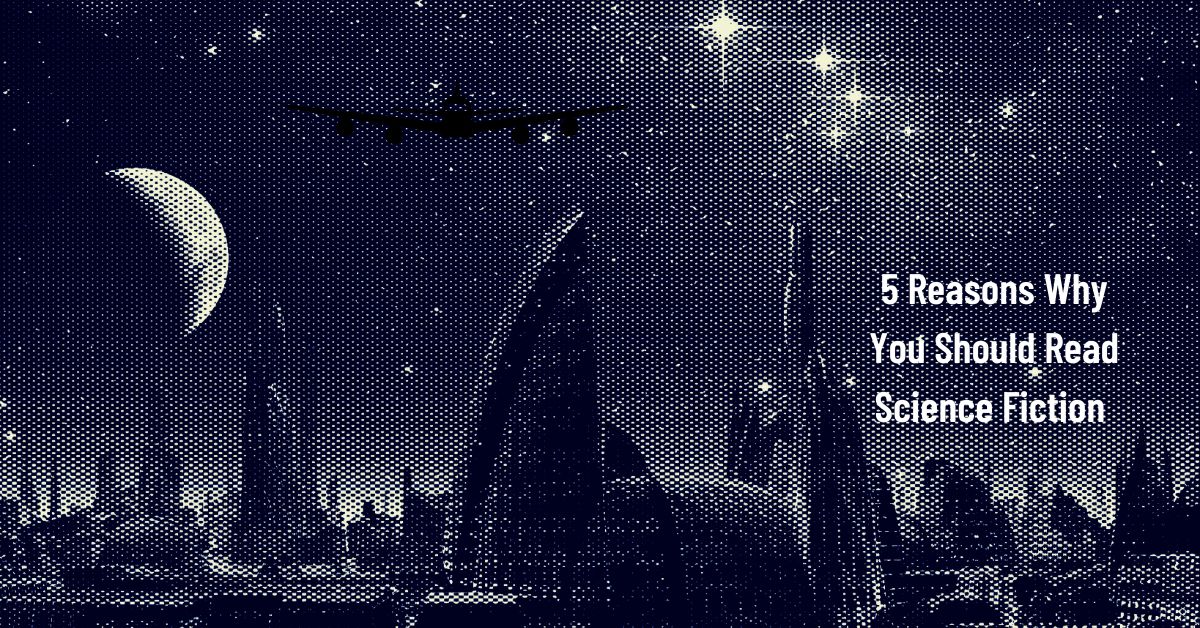Science fiction stories are about other worldly things or a clash of science with modern everyday life. Some of the best sci-fi books are about space, experiments gone wrong, strange planets, mutations or maybe even space invasions. During my childhood days, I whittled away hours and hours reading sci-fi novels.
Why You Should Read Science Fiction Science Fiction is Brain Food
1. The Ultimate Escape
The ultimate reason to read sci-fi is to escape. Of course, you could read any book to do that, but science fiction is in a class of its own. I’ve read all kinds of books. While I do avoid some genres, generally, I’m open to giving most books a try. Even so, great sci-fi books capture every part of my imagination. From the texture and sounds of new worlds to the dangers and strangeness of alien creatures. With sci-fi it’s easier to escape the known, our lives and even our comfort zones.
2. Science Fiction History is Literary History
Way back in the 2nd century Lucian of Samosata wrote, A True Story. His novella has aliens, planet colonization and space travel. It is the epitome of storytelling. It looks at possibilities and creates a whole world around those concepts. In a time, when there wasn’t any modern technology as we know it, this author presented us with artificial life forms. Every sci-fi concept in A True Story, is still fodder to today’s writers.
From the 10th century we have One Thousand and One Nights. A collection of stories written by various Middle Eastern authors. The stories are timeless. They have bandits, magic lamps, wizardry and science. Today, these ancient stories are a part of modern culture. We know the tales of Aladdin & Ali Baba and the Forty Thieves best. They are popular Disney movies and stories that are retold again and again. I once owned a book set of these stories. I took them to college with me. I accidentally left them in storage. When I went back for them, someone had taken them. I still miss them.
The 13th century writer, Ibn al-Nafis likely wrote the first modern science fiction novel Theologus Autodidactus. It’s a full-length novel about a boy who just came into existence by spontaneous generation. A concept that modern scientists continue to discuss. It’s a coming of age where this isolated being enters society and causes an apocalypse. So interesting.
In the 14th century we get into stories that incorporate real science into fiction. An anonymous work, The True History of the Good King Alexander, has all kinds of superhuman feats, unproven technology like submarines, and some mystical creatures. A true combination of science and fantasy.
With sci-fi, we get to the root of the novel. That desire to put a story in writing and then share it with the masses. No other genre so fascinates its readers. That’s why the early science fiction stories are all classics. Now, we just don’t think of them as sci-fi.

3. Science Fiction and The Future
Beginning in the 17th century, it gets pretty standard. Authors put more science and more fiction into their stories. Science Fiction becomes a genre. From New Atlantis to Gulliver’s Travels things shift into fiction with scientific premises. We get stories like the Mummy, Frankenstein and The Time Machine.
Modern authors, from the 20th century, like J. R. R. Tolkien, George Orwell, Isaac Asimov, Orson Scott Card, Octavia E. Butler, Douglas Adams, Kurt Vonnegut and so many more take us into what sci-fi is all about. They help us to imagine the future. They give us reason to hope and reason to fear.
Things like speaking computers and artificial intelligence started out as big ideas housed in someone’s head. Science writers inspired many of our modern conveniences. Thanks to them we have computers, cell phones and iPads. Our efforts to do the things these writers imagined still drives technology. Some of the strange and wondrous things will never happen. Lucky us.
4. You Can Learn About Life From Sci-Fi Stories
Great science fiction writers paint with broad strokes to show us the best and sometimes the worst of humanity. From their stories, we can expand our viewpoint. Science fiction, like Star Trek, have a long arm of influence because they posit super advanced technology. Nevertheless, many sci-fi stories also embed very noble ideas like gender and racial equality, universal medical care, global responsibility and free education. From them, we learn ways to improve our society or at the very least get real warnings of what the future might hold if we take a certain course. For good or bad, the real people who read sci-fi, may boldly inject an author’s vision into this very planet.
Science fiction authors craft stories around new science, technology, and other unique things, but no matter what they imagine there are life-forms doing the doings. In my mind, that’s the key reason to read sci-fi. Such stories must always deal with life, with being and with the hardest thing of all relationships.
At its best, sci-fi marries technology and other worldliness with great characters.
Getting to The List
Moving forward, I fear science fiction will become all fantasy without the science. That thought saddens me. With that said, here’s a list of my favorite sci-fi novels.
 Dune by Frank Herbert (Books 1 – 3)
Dune by Frank Herbert (Books 1 – 3)
The story takes place on the planet Arrakis where a desert people live. Mining spice, a mind-expanding substance, and the desire to control it creates a power struggle on the planet. Paul Atreides is the main character. He is a young man caught in the middle of feuding governments and a planetary take over, but his powers grow because of his use of spice. There’s a lot more to it. In order to get the details, you’ll need to read it. My summary is boring in comparison. It doesn’t do any justice to this science fiction series.
There are fifteen books in the Dune series, but I’ve only read five or six of them. Can’t remember because I only liked books 1 through 3.
The Chronicles of Narnia by C. S. Lewis (Books 1 – 7)
This is a fantasy series. When I was a child, I loved all the talking animals and the brave mouse Reepicheep. It’s kind of religious symbolism, so as an adult, it’s not a series I’ve reread too often. Every book in this series is a wonderful journey for the young mind. I have given a box set to my nephews, nieces and my friends children. Additionally, I’ve read them aloud to most of the children in my life. While these books are especially good for young readers, I recommend them to first time adult readers as well.
Ender’s Game Series by Orson Scott Card (Books 1 – 4)
Books 2 through 4 are my favorite in this series. This series takes place after an earth invasion. The military groomed young children to fight a war against the invaders. It’s true blue science fiction. Ender Wiggins comes into the series as a boy. The only boy who could win against an unseen, unknowable enemy. While the first story is good and engaging, it’s the next three books that captured me. In this series, Card takes us to strange planets, has humans interacting with alien creatures and in every novel, he creates another new and wonderful story.
Ender’s Shadow / Shadow Saga Series (Book 1 & 2)
These books give a parallel view to the Ender’s series. Bean, a super intelligent, tiny boy who by book three is a giant was also likely capable of ending the Bugger wars. As the story goes, he remained in the shadow ready to step in should Ender fail. That didn’t happen. What did happen after Ender won the war was a fight for world dominance. Bean went back to Earth to deal with the conflict.
The Lord of the Rings (LOTR) by J. R. R. Tolkien (Book 1 – 3)
This is one of the best science fiction series of all time. It’s probably more fantasy than science, but it’s still great. The whole series has the kind of magic children love, mixed with the complexity that everyone loves. I first read the Hobbit, which is my favorite book by Tolkien. In my opinion, the Hobbit is the first book of the series, but I seldom see it put that way. If you’ve not read this series, go read it. I’ve never seen the movies. Personally, I believe reading books is more of a treat to the imagination than watching movies. So, even if you’ve seen the LOTR movies and you’re not a reader pick up the books anyway.
The Foundation Trilogy by Isaac Asimov (Books 1 through 4)
The premise of this book uses real science to support its plot. A mathematical genius, Hari Seldon, using his formulas can predict the future. He foretells the fall of the galactic empire. To reduce the devastation of the coming dark age the uncertainty principle of sociology serves as a counter measure to preserve civilization and ultimately the empire.
The Hunger Games (All three books)
A new to the game series. While I liked this series for the complexity of the story, the unique story line, in terms of the hunger games, telling the story in the present tense was a little off putting to me. As a writer, I admired the author’s expert use of present tense. It’s a lesson in first person POV with a present tense narrative. A feat. Read it for that alone if you’re averse to science fiction novels.

5. The Benefits of Reading Sci-Fi
When I was young, I read science fiction because it was the best of escapes. Today, I enjoy getting out of my adult life, even if for a few minutes a day, to jump into new worlds, strange or futuristic tomorrows. There are all kinds of issues to tap into, like worlds with different people, strange species of sentient beings and sci-fi eccentricity coupled with the same issues of modern life. While reading, I get lost in evolved or sometimes socially devolved civilizations. The one constant in all science fiction is relationships and that’s the magic. Reading these stories gives me a moment to walk with characters in ways I never would have imagined.
What Science Fiction Means to Me
The listed books were for me, an opportunity to escape the everyday things. Those books that stick with me are the ones I read as a child. They have a special place in my heart and mind. Going back to read them or sharing these books with the children in my life, somehow makes my own life feel more meaningful.
What can people learn from sci-fi? Everything. It’s a world full of potential. In a way, reading such books, removes or prevents boundaries to the imagination. From sci-fi, we can not only learn about science, but about humanity. My hope is that new science fiction writers, not forget the responsibility of the genre. Science fiction, at its core is commentary on the human condition. It exposes the wrongdoing of society, the need to rise up, the responsibility of government. At its best, it gives us new ways of looking at life and the inspiration to expand science and technology past the limits of what’s currently known.
A Final Word…
At one point in my life, I listed LOTR as my favorite science fiction series. Before that, it was Dune. Sometimes, it’s the Ender’s Games series. The truth is, I can’t decide. One thing is for sure, these are my all-time top three sci-fi series.
As a side note, I want to express my confusion about some popular series. Sometimes, the series just goes too far and loses its impact. It’s like the Rocky movies which should have stopped at Rocky 3. Once a series goes past the third or fourth book, it often becomes pretentious rambling or preaching. At least it’s true for Dune and Ender’s Game, specifically, the Shadow series. Maybe it’s a money grab. Who knows? Of course, that little rant has nothing to do with reading science fiction.
Not ready to take the sci-fi plunge? Perhaps you’ll find something to read on my list of 8 Quirky Books




